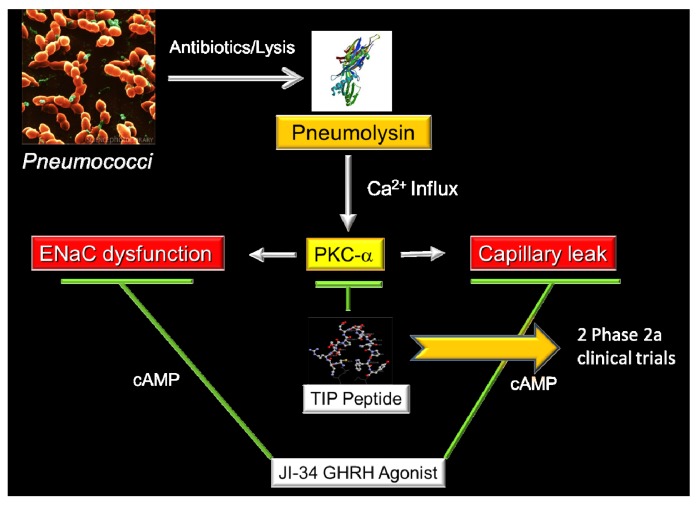Figure 1.
Antibiotic-induced release of pneumolysin (PLY) by S. pneumoniae causes a rapid influx of Ca2+, which activates Protein Kinase C-α. This enzyme is involved in the induction of hyperpermeability in the capillary endothelium and, moreover, causes a reduced expression and activity of the epithelial sodium channel (ENaC) in type II alveolar epithelial cells. Our preliminary data have shown that two peptides derived from the body’s own mediators, i.e., the TNF-derived TIP peptide (chapter 7) and the Growth Hormone-Releasing Hormone-derived agonist JI-34 (chapter 6) can restore barrier integrity and ENaC function in the presence of PLY, in a cAMP-independent and -dependent manner, respectively.

